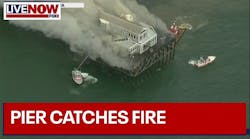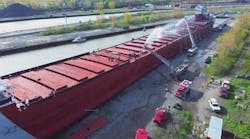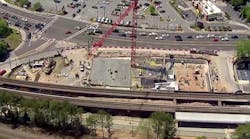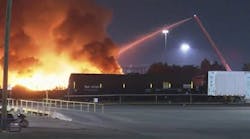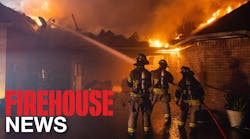According to the June 2005 issue of Firehouse Magazine, the Fire Department of New York (FDNY) is the largest and busiest fire department in the United States. It is common knowledge that they see and fight more fire then just about any other professional fire department.
Yet, day in and day out, the members of FDNY continuously train at the company level. In fact, they train twice a day for each tour coming on duty. The fortunate soul who works all day long will participate in two training sessions.
If any firefighters could rest on their laurels and simply rely on their experience, it would be these guys. It stands to reason that if the busiest department in the nation trains twice a day at the company level, then maybe we should all consider training at least once a shift.
The benefits of company level training are numerous. First, the training will provide a level of competency where a lack of experience exists. Not everyone is blessed to go to a working fire every shift or tour. Some of us wait days, weeks, or even months between working fires. This creates a void of experience that only regular training can come close to filling.
Obviously nothing beats the real thing when it comes to fighting fire. Forcing a door, with heavy smoke and fire blowing from the window next to it cannot be replicated. Cutting a ventilation hole on a roof when your fellow firefighters are depending on you to relieve the oppressive heat they are experiencing inside the structure is the best learning tool for future vertical ventilation operations. However, the reality is that most fire personnel are working fewer fires, and the only viable substitute for field experience is training. No one can train firefighters better than firefighters.
Second, regular company training will foster team cohesion. If a four-person company is behind the station every shift training together, they will get better at whatever skill they are practicing and also learn what the other members of their company would do in certain situations.
Knowing that the person next to you has gone through the same training creates a comfort level; actions occur without any direction being given. Jarrod grabs the spreaders and the bag of cribbing. Josh takes care of the power plant. Jesse pulls a 1 3/4-inch protection line. The officer is free to overlook the operation and is able to keep a sharper eye on the safety of his members. He or she is not a traffic officer, giving everyone a specific assignment, because he or she has taken the time to train the company and each member understands what is expected.
Third, training brings pride to the company. When members are challenged to expand their knowledge, most firefighters will step up to the plate. Now, make no mistake about it, you will experience whining and resistance. It is the nature of firefighters to complain and gripe about any type of change. I think that trait is instilled when the badge is first pinned on them.
Fortunately, firefighters also have a redeeming quality that goes hand in hand with any complaining you might encounter. Once you get a firefighter physically involved in any activity, whether it is training, painting tools or wiring in the new surround sound for the station, you simply step back and watch them feed off of each other. Soon, they will take over the training and try to improve on it. If at all possible, they also will turn training into a competition, trying to see who can get through the wall breach the quickest, then trying to do it faster while blacked out. As an officer, you will have to reign in the horses, which is exactly where you want to be.
Fourth is the commitment we make as firefighters: Everyone goes home. Every firefighter has an obligation to his or her fellow firefighters to do everything possible to insure that everyone goes home. As an officer, this commitment goes even deeper. You are in charge. Your crew members do what you tell them to do. They look to you for direction and guidance.
How many officers actually consider the responsibility of making sure their crew goes home after each tour? The last line of duty death my department experienced was more than 20 years ago. It is very easy to forget that people die doing this job. Not many people have pulled up to a structure fire and said, "This could be the fire that kills me."
Most line of duty deaths occur at run of the mill structure fires. Of course, there is always an exception such as the World Trade Center. But it is the "everyday" fire that gets most of us, due to the quantity to which we respond, as opposed to that once in a lifetime fire. We must train on the everyday tasks because these are what we do most.
Company level training is everyone's responsibility. The officer is responsible for getting the ball rolling, but it is the responsibility of each crewmember to take the training to heart.
This type of training tends to feed off itself. Give every crew member the opportunity to lead one of the sessions. To truly know a subject is to teach that subject. By teaching a particular subject, the crew member will learn what it is like to put thought into the next day's activities, and give them not only a better understanding of the subject, but also some insight into an officer's duties. This also will prepare them to make rank or to further appreciate their current position.
In the future, I will write articles featuring different subjects for training. Included will be necessary lesson plans, prop descriptions and dimensions, as well as any related costs of building props.
I ask for your participation in this. Please send ideas for future topics or ideas for props that you are either currently using or have seen in use. In terms of training, I am by no means DaVinci. I am not reinventing the wheel. I want to gather as many ideas from around the country and put them in one place so that we can all benefit from them. Credit to the contributing individuals and their departments will be given for each article published. If we put our ideas together, maybe we can help each other go home to our families, safe and sound.
Related:Larry Manasco has been with the Fort Worth, TX, Fire Department for 11 years and has has served as a lieutenant for the past three years. He holds the classification of Fire Officer I and Hazardous Materials Technician. He currently works in one of the busiest engine companies in Fort Worth. He has worked for Firehouse World in San Diego where he was an assistant instructor for FDNY B.C. Salka's "Get Out Alive" H.O.T. class. You can contact Larry by e-mail at [email protected].
